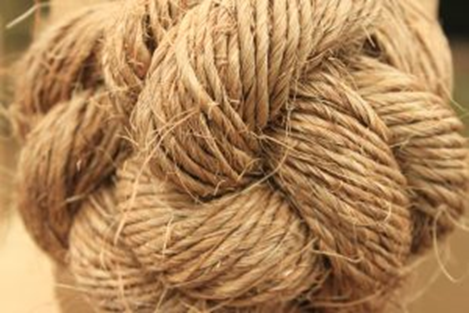To analyze the given Twill fabric sample
To find weave, warp count, weft count, EPL, PPI.
Calculate
Warp crimp & weft crimp %, GSM, Denting
Instrument:
Beasley balance, crimp tester, fabric sample, picks glass etc.
Theory:
Twill weaves are the weaves that find a wide range of application. They can be constructed in a variety of ways. The main feature of these weaves that distinguishes from other types is the presence of pronounced diagonal lines that run along the width of the fabric The weave is used for structure which range from very jeans, bed sheet, suiting and shirting, shawals.
OBSERVATION TABLE:
Count = length in yard* 453.6 /Weight in gram *840
| SR NO | EPI | PPI | WARP COUNT | WEFT COUNT | WARP CRIMP % | WEFT CRIMP % |
| 1 | 115 | 60 | 20 | 21 | 7.2 | 5.6 |
| 2 | 116 | 61 | 20 | 21 | 7.3 | 5.7 |
| 3 | 118 | 61 | 20 | 21 | 7.2 | 5.6 |
| 4 | 116 | 60 | 20 | 21 | 7.3 | 5.8 |
| 5 | 115 | 61 | 20 | 21 | 7.2 | 5.6 |
| Mean | 116 | 60.6 | 20 | 21 | 7.2 | 5.6 |
1.Warp count NE= 2.31*0.453/840*0.62
= 20 Ne
2.Weft count Ne=2.41*0.453/840*0.60
= 21 Ne
3. Crimp %= Extended length-original length/original length*100
Warp crimp% = 10.72-10/10 *100 =7.2%
Weft crimp%=10.56-10/10 *100 =5.6 %
4.GSM = (Weight of sample/25 *10,000
= 0.52/25 *10000
=208 g/m²
5.Denting =EPI=116/2
6.Reed Count=20/2 =10 Ne.
Sample:


Result:
Hence, in shis way analyse the given fabric s
WEAVE : Twill weave.
The following results are found from the above experiment.
EPI= 116
PPI =60 6
Warp crimp% = 7.2
GSM= 208
Warp count = 20
Weft count = 21
Weft crimp % = 5.6%
Denting= 2



